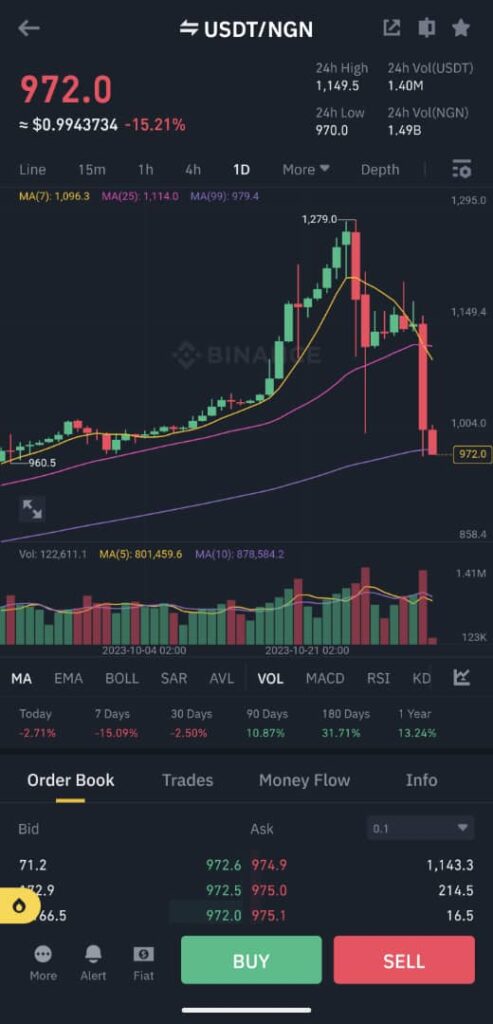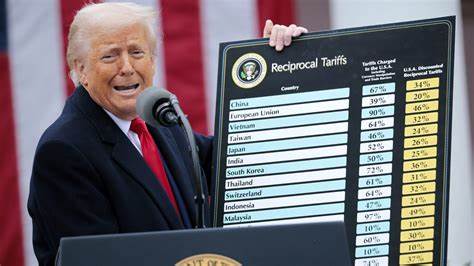In the midst of shifting economic dynamics, the Naira held its ground in the black market, while the US dollar faced further weakening, with traders speculating on the Federal Reserves’ stance on interest rate hikes. Currency traders on Binance’s P2P market saw the Naira trading as high as N972/$ after breaching the N1,000/dollar resistance level.
Join our WhatsApp ChannelNotably, a Chainalysis research report highlighted Nigeria’s leading role in the cryptocurrency peer-to-peer exchange market. In 2022, Nigeria moved up one spot to the 17th position in P2P exchange volume, an improvement from the 18th place in 2021.
However, at the official market, the Naira faced challenges, reaching an intraday low of N1,018.6 to the US dollar on November 2. The release of crucial nonfarm payroll data for October presented a hurdle for the Naira’s stability.

As the labor market displayed resilience, the Federal Reserve’s intent to raise interest rates came into focus, potentially impacting the dollar’s performance. While the Fed remains open to rate hikes, the final decision hinges on additional economic data.
Market dynamics suggest tension in the US Dollar Index’s rally, with fractal dimensions indicating low market diversity. The US Dollar Index remained close to its one-week low, with expectations of a 0.4% decline, marking its third weekly drop since July.
The CME FedWatch tool revealed a decreased market expectation for a December rate hike, down to less than 20%, despite the Fed’s openness to future hikes.
In a notable move, the Central Bank of Nigeria (CBN) began clearing the backlog of FX forward contracts, aiming to bolster the Naira and support the country’s economy. The source of funds used for this clearance remains a mystery, with foreign airlines among the beneficiaries.
Notably, Tier 2 Nigerian banks and international banks with foreign exchange forward contract obligations saw their contracts cleared. Companies like Citigroup, Stanbic, and Standard Chartered are receiving FX futures deliveries.
The Federal Government announced its intention to allocate $10 billion to settle FX obligations, strengthen the FX market, and stabilize the Naira. Finance Minister Wale Edun highlighted the expectation of improved FX liquidity in the coming weeks and ongoing discussions with sovereign wealth funds for investments.
In a changing economic landscape, Nigeria grapples with currency dynamics, the Federal Reserve’s moves, and efforts to stabilize its financial markets and currency.
Emmanuel Ochayi is a journalist. He is a graduate of the University of Lagos, School of first choice and the nations pride. Emmanuel is keen on exploring writing angles in different areas, including Business, climate change, politics, Education, and others.



















Follow Us